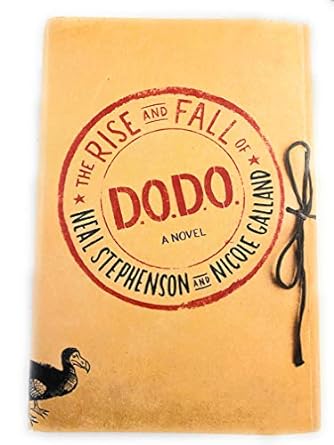![[Amazon Link]](/ps/asin_imgs/1952223431.jpg)
In his recent book Freedom’s Furies: How Isabel Paterson, Rose Wilder Lane, and Ayn Rand Found Liberty in an Age of Darkness, Timothy Sandefur describes the intellectual climate that those “founding mothers of libertarianism” faced in the Hoover‐Roosevelt Depression years:
Between 1917 and 1919, agencies such as the War Industries Board and [Herbert] Hoover’s U.S. Food Administration appeared to vindicate Progressive beliefs in government planning. A decade later, many—including Hoover himself—pointed to that precedent, arguing that the Depression was analogous to a world war and should be dealt with in the same way.
That was the basis for the idea that General Electric’s president Gerard Swope proposed in September 1931. He recommended that the federal government create a system of industrial cartels under which all companies of more than 50 employees would be assigned to a trade association vested with authority to dictate the types and amounts of goods and services businesses could provide, and how much they could charge. This would prevent “destructive” competition, by giving companies the power to prohibit their competitors from reducing prices or introducing new or improved products, which would “stabilize” the economy and ensure full employment. “Industry is not primarily for profit but rather for service,” Swope declared. “One cannot loudly call for more stability in business and get it on a purely voluntary basis.” Although hardly the only such proposal—it mimicked the corporatism already being implemented in Italy and Germany—the Swope Plan gained the most attention and would later form the blueprint for the National Industrial Recovery Act. But at the time, Hoover labeled it “fascism” and rejected it as “merely a remaking of Mussolini’s ‘corporate state.’”
Many similar schemes were offered by prominent intellectuals, including historian Charles Beard, who proposed “A Five‐Year Plan for America” on the Soviet model, and New Republic editor George Soule, whose 1932 book A Planned Society proposed political control over the entire economy. These writers, said one of Soule’s colleagues, “were impatient for the coming of the Revolution; they talked of it, dreamed of it.” And they were not alone. That same year, novelist Theodore Dreiser published Tragic America, which he had originally planned to call A New Deal for America. It advocated the overthrow of capitalism and the replacement of the Constitution with a government that would control industry in the style of the Soviet Union, where he thought communism was “functioning admirably.”…
Dreiser probably changed his title because A New Deal had already been taken by economist Stuart Chase, whose book of that name also appeared in 1932. Chase—who considered it “a pity” that “the road” to socialist revolution in America was “temporarily closed”—looked forward to the day when the government would seize all industry and “solv[e] at a single stroke unemployment and inadequate standards of living.” It would do this, he said, by compelling all individuals to “work for the community.” The government should forbid high interest rates, stock market speculation, the manufacturing of “useless” products, the creation of new clothing styles, businesses “rushing blindly to compete,” and other “ways of making money”—and it should do so “by firing squad if necessary.” The 44‐year‐old Chase was inspired by the “new religion” of “Red Revolution,” which he found “dramatic, idealistic, and, in the long run, constructive.” “Why,” he asked, “should the Russians have all the fun of remaking a world?”
I liked Sandefur's previous book about Frederick Douglass. Looks like I'll have to read this one too.
Also of note:
-
Or duck under it. Avoid it, in any case. Mathew Lloyd explains Why Libertarians Must Rise above the Left-Right Dichotomy of Politics.
In the UK we have a Conservative prime minister—right wing—and the results of their governments interference in the economy and politicization of everyday life has had a negative impact on individual lives, public discourse, and the economy. In the US there is a Democrat president—left wing—and their neighbors to the north, Canada, have a Liberal government—left wing (though not truly liberal in the original meaning of the word)—and both these countries have economic troubles and heavily politicized daily lives just like the UK. The list of countries with leaders and governments from opposite sides of the spectrum goes on and on, but what all these left and right wing governments have in common is the same poor outcomes and worsening situations created by their beliefs.
How can two supposedly vastly different worldviews result in similar outcomes? If they were truly worlds apart then the results would be worlds apart too. The reality is both sides of the spectrum rely on varying degrees of authoritarianism to achieve their popularity, and both sides deploy authoritarian policies against the economic and social lives of citizens which is why the results are so similar. Both sides cripple economies through taxation, regulation, and punishment of economic activity. Both sides forbid certain speech, certain behavior, certain views, and certain interactions. Both sides believe in the use of force against different groups of people and in punishing different groups based on immutable characteristics in the name of ‘equality’ and ‘fairness.’ Both sides are unprincipled and will change their positions based on whichever way the political wind is blowing. To put it bluntly, both sides are just different flavors of the same foul stew.
I'm kind of sympathetic to this argument. Although when it comes to voting, the Libertarian Pary keeps insisting on nominating lunatics. So that's kind of a deal-breaker for me.
Recently on the book blog:
Recently on the movie blog:


![[The Blogger]](/ps/images/barred.jpg)



